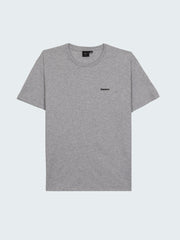Having been introduced to the Finisterre crew on our summer trip, Mario Ordoñez-Calderón tells us about his non-profit Un Mar De Colores, the impact it's having on his community and his pride in reconnecting Indiginous and Latino communities to the ocean.
Un Mar De Colores
13.05.25
4 min read
Mario Ordoñez-Calderón interviewed by Zak Rayment
Photography by Abbi Hughes, Jack Johns & Un Mar De Colores
Where and how did you first develop your connection to the sea?
My connection to the sea began long before I ever stood up on a surfboard. As a kid, I’d travel with my family from California to visit my grandparents, tios, tias, and cousins in Yucatán, Mexico. Some of my earliest memories are of swimming in the warm Caribbean waters off the Gulf, where my abuela would watch us from the shore.
Those trips were full of so much joy because it was a life completely different than my Californian one. It’s funny because I would always try to convince my parents to stay and how I would pick up a job selling coconuts off my bicycle to make it happen. I didn’t know it then, but those moments planted the seed of an ancestral thread reconnecting me to something bigger than myself.
It wasn't until many years later, while in military service with the Navy that I found myself living near the ocean in Oceanside, that I learned to surf. I was an adult by then, but catching my first wave felt familiar, almost like a remembering. I got thrashed the first couple of times I went. Oceanside can be a pretty steep wave. Especially while learning. But something kept calling me back. Over the years, Surfing became more than a sport; it became a pathway to healing, reflection, and belonging.
Tell us about 'Un Mar de Colores' and what prompted you to start this non-profit.
Un Mar de Colores was born from that feeling of returning to something sacred, something our communities have long been kept from. A few years ago, I went on a solo bike trip through the Yucatán Peninsula. It was a part journey to dive deeper into my cultural heritage and a stride in answering the age old question we all have “who am i?”. I was searching for clarity about my next chapter. Along the way, I passed by Cenotes, sacred water sources for my Mayan ancestors, and I kept thinking about water as memory, how it holds stories, healing, and connection. This concept is known as ecological memory.
After returning from that trip I felt incredibly grounded in myself and entered this space I like to call an era of abundance. It was from that space in which I felt like I could give and, I knew exactly where I wanted to start. I had Latino neighbors whose kids would always be out playing in the yard. In the mornings, I’d wave to them as I’d be on my way to surf and they were loading up getting ready to go to school. I began to wonder why, despite living less than a mile away from the beach, do I never see this family or families similar to them, at the local beach. Quickly I began to relate because I had a similar upbringing, and if it weren't for my best friend inviting me to surf I never would've learned. So I essentially wanted to be that connecter and designer of spaces where youth - especially Indigenous, Latino, and immigrant youth - could reconnect to land and water through surfing.
That’s how Un Mar de Colores came to be. Today, we’re a nonprofit rooted in surf therapy, environmental education, and mentorship. Our core program, One Ocean, offers year-round surf and eco-field trip days. We also run place-based after-school programs, a binational climate academy with students from Mexico and the United States, and a mental health practicum that places therapists-in-training in nature-based youth settings. In all of this, we’re guided by community, culture, and care.
Do you see a positive impact in the participants and their families?
I’ve seen transformation every season. Students walk into our programs anxious or unsure and, over time, we see their confidence build. For many families, this is their first time experiencing the beach as a place of rest and belonging. Even though these families live just minutes from the coast, there are so many invisible barriers, economic or social, that keep them away. Parents shared that their children became "more confident in the ocean" and "motivated," with some noting a "sense of community" after participating. One parent reflected that, "It also helped him mentally and physically."
Families, too, found themselves reconnecting to nature in new ways. As one parent said, "We got to the beach much more last summer because of the program," while another described the surf fiestas and eco field trips as "incredible opportunities to connect with nature."
Through One Ocean, barriers are being broken down.
As a person of Mayan descent, what does it mean to share the gift of the sea with other Latino and Indigenous communities?
For me, this work is deeply personal. I carry my Mayan heritage with pride. My abuelo buried my umbilical cord in the Yucatán, a tradition symbolizing lifelong connection to the land. In a roundabout way, I see our surfboards as extensions of that thread. When I teach a young person to ride a wave, I’m not just teaching a skill, I’m helping them remember something older than all of us.
In California, much like in other parts of the world, colonization severed Native and Indigenous communities from the coastline, but memory is resilient. By helping youth rebuild their relationship with the ocean, we’re not just offering access, we're offering reconnection. A restoration of cultural memory.
The sea has given me so much: connection, clarity, and community. Sharing it with others is my way of giving back, not just to the community, but to the ocean itself.






























































































